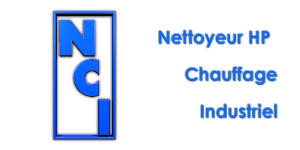The Ultimate Guide to Understanding Information Portals in the Digital Age
What Is an Information Portal?
An information portal functions as a centralized online platform designed to aggregate, organize, and deliver critical digital resources to users. It acts as a single entry point for accessing diverse data, services, and tools, making it essential for both individuals and organizations. These portals streamline data access by consolidating information from multiple sources into a user-friendly interface, reducing the time and effort required to find relevant content.
Key Features of Modern Information Portals
- Centralized data access through integrated search and filtering options
- Customizable user-friendly interface to suit individual or organizational needs
- Real-time updates and notifications to ensure up-to-date digital resource availability
Why Information Portals Matter for Businesses
For businesses, an information portal serves as a strategic tool to enhance operational efficiency. By providing employees with a unified online platform for internal documents, project management, and communication, companies reduce redundancy and improve collaboration. This streamlined data access also empowers decision-makers with actionable insights, turning raw information into valuable digital resources that drive growth.
How Information Portals Enhance User Experience
A well-designed information portal prioritizes user experience by offering intuitive navigation and personalized dashboards. Its user-friendly interface ensures that even non-technical users can quickly locate and interact with digital resources. Whether it’s tracking performance metrics or accessing training materials, these portals eliminate friction, making data access seamless and efficient.
Security and Privacy in Information Portals
- Advanced encryption protocols to safeguard sensitive digital resources
- Role-based access controls to restrict data access to authorized personnel only
Top Trends Shaping Information Portals in 2025
In 2025, information portals are evolving rapidly with innovations like AI-driven personalization and blockchain integration for enhanced security. Cloud-based solutions are becoming the norm, allowing real-time data access across devices. Additionally, the rise of mobile-first designs ensures that user-friendly interfaces adapt seamlessly to smaller screens, making digital resources more accessible than ever. For those seeking cutting-edge tools, explore https://megamoolah-slot.net/.
Case Studies: Real-World Applications of Information Portals
- A healthcare provider implemented an information portal to centralize patient records, improving diagnostic accuracy and data access for medical staff
- An e-commerce company used a user-friendly interface to unify customer support, inventory, and sales data into one online platform
- A government agency launched a public digital resource hub to provide citizens with transparent access to policy details and services
Challenges in Implementing Information Portals
While information portals offer significant benefits, challenges like high initial costs, resistance to change, and the complexity of integrating legacy systems can hinder adoption. Ensuring data access remains secure while maintaining a user-friendly interface requires careful planning and ongoing maintenance.
Best Practices for Designing Effective Information Portals
To maximize impact, focus on creating a user-friendly interface that prioritizes simplicity and speed. Regularly update digital resources to maintain relevance, and invest in robust security measures to protect data access. Collaboration between developers and end-users ensures the online platform meets practical needs effectively.
The Future of Information Portals: Innovations to Watch
The future of information portals lies in hyper-personalization and predictive analytics. Emerging technologies like augmented reality could transform how users interact with digital resources, while decentralized platforms may redefine data access models. As these advancements unfold, the role of online platforms will expand beyond mere information delivery to proactive problem-solving.
How to Choose the Right Information Portal for Your Needs
- Evaluate scalability and compatibility with existing systems
- Prioritize platforms offering a user-friendly interface and customizable digital resource organization
Frequently Asked Questions About Information Portals
Q: What distinguishes an information portal from a regular website?
A: Unlike standard websites, an information portal aggregates diverse digital resources into a cohesive online platform, emphasizing ease of data access and tailored user experiences.
Posted in: Non classé
Leave a Comment (0) →